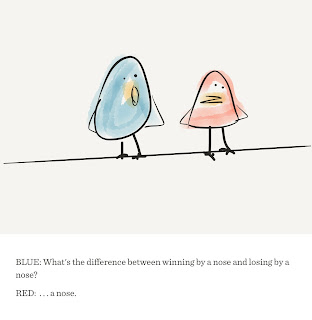Some small poems

UPDATED OCCASSIONALLY - Jack Vaughan At Kafka's Home ---- Strange Edison Electrical Illumination At about the age of 10, Edison goes to the creek with young friend George Lockwood, who disappears in the eddies to drown. Edison observes the creek water for a long time, maybe rapt by the dying Lockwood’s breath bubbles. At last, after the long wait for Lockwood to surface, Edison finally goes home to dinner and to bed without telling anyone about the event. Meanwhile, a party searches for Lockwood – eventually they come to hear Edison’s story of his drowning. Self-taught polymath, noted as a man of amazing concentration. He could look intently at what was there and was able to uncover deep first principles as he tinkered with pieces of metal, carbon, vulcanite, lamp black and assorted materials. More than that, he had a gift for imaginative re-application of principles to conjure new products, and improv...


